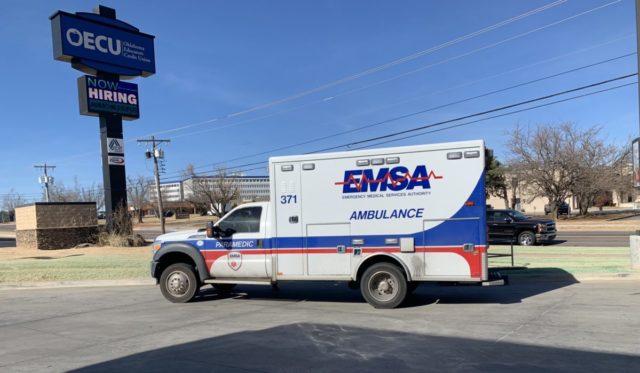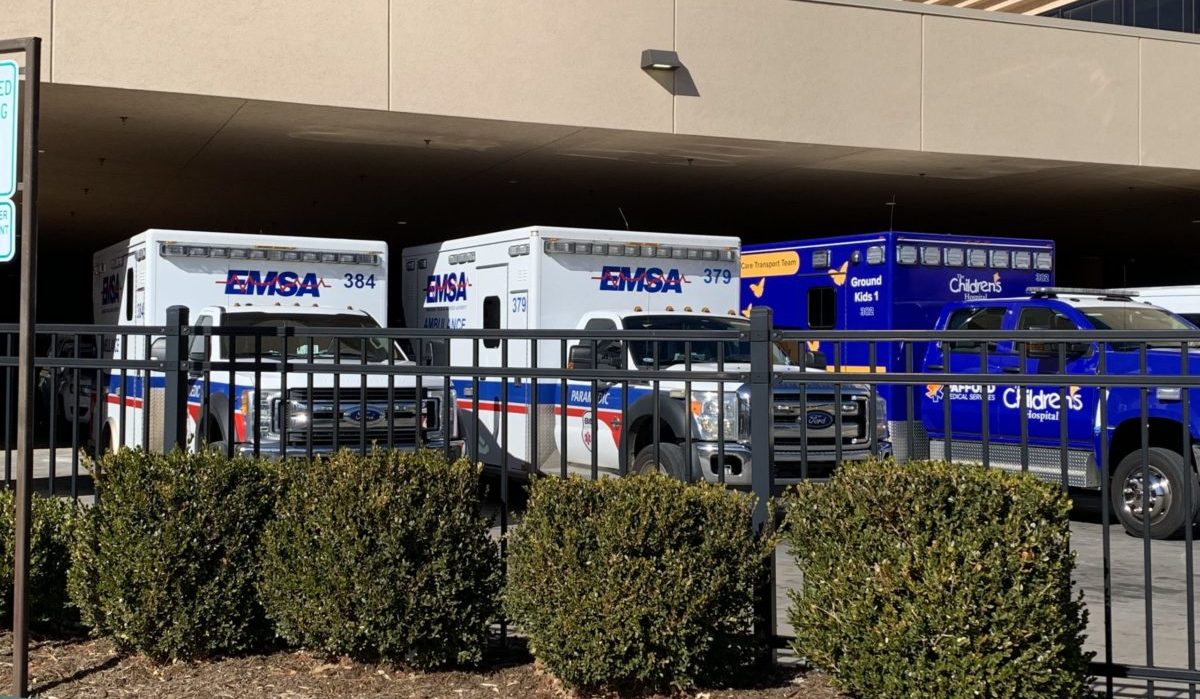
The Emergency Medical Services Authority, otherwise known as EMSA, has agreed to pay American Medical Response ambulance service $10.5 million to settle a lawsuit and end a lengthy legal dispute that could have seen the Oklahoma public trust pay more than $16 million to the private company.
In the agreement, EMSA and AMR said the funds will be paid by EMSA within five days of the settlement being signed. The two organizations will file a joint dismissal upon receipt of funds. EMSA’s board of directors approved the agreement at an Oct. 26 meeting.
Each organization also agreed to pay their own legal fees as part of the settlement, and they agreed not to sue each other over anything contained in the agreement in the future, according to court documents.
EMSA is a public trust that provides ambulance service for communities in central Oklahoma and Tulsa. More than 1.1 million Oklahoma residents live within the EMSA service area, and the trust has contracts with the cities of Oklahoma City, Edmond, Nichols Hills, The Village, Tulsa, Sand Springs, Jenks and Bixby.
Based in Colorado, American Medical Response is a subsidiary of Global Medical Response that provides ambulance services in about 40 states, including neighboring Texas, Colorado, Kansas, Missouri and Arkansas. AMR continues to serve Weatherford and parts of western Oklahoma, according to its website. EMSA and AMR entered into an agreement for ambulance services in 2013.
EMSA and AMR had sued each other in federal court. EMSA first filed suit against AMR in September 2020, claiming AMR had failed to pay millions in profit sharing it owed EMSA over a five-year period beginning in 2015. EMSA claimed the company failed to make payments over that period, which EMSA said AMR was required to do under their operating agreement.
AMR countersued EMSA later that year, claiming that EMSA breached its contract when it stopped remitting monthly payments to AMR. EMSA stipulated in its lawsuit that it had withheld more than $16 million in payments. AMR asked a judge to freeze the money involved in the dispute on behalf of the company.
That same year, the EMSA board of directors terminated its contract with AMR and began staffing ambulances with its own personnel.
In the end, EMSA will pay AMR $10.5 million to settle the two-year dispute, which is almost $6 million less than EMSA originally owed AMR.
“The parties agreed to settle their contractual disputes which were at issue in the lawsuit filed by EMSA in the United States District Court for the Northern District of Oklahoma (Case No. 20-cv-00455-GKF-CDL),” Adam Paluka, EMSA’s chief public affairs officer, said in a statement. “Under the terms of the settlement agreement, EMSA has agreed to pay $10.5 million to AMR from the funds held by EMSA in mitigation of the claims made in the lawsuit and in dispute between the parties. The settlement resolves all claims asserted by EMSA and all counterclaims asserted by AMR. The parties were able to resolve their differences through mediation, thanks to the help of the Honorable Judge Robert Henry, former chief judge of the United States Court of Appeals for the 10th Circuit.”
Nicole Michel, director of public relations for Global Medical Response, released a statement calling the settlement “amicable.”
“On Oct. 26, the Emergency Medical Services Authority (EMSA) Board of Trustees approved a settlement agreement between EMSA and AMR,” the statement said. “Under the terms of the agreement, EMSA will pay $10.5 million to AMR. The parties were able to reach an amicable resolution to their contractual disputes under the auspices of former chief judge of the United States Court of Appeals for the 10th Circuit, the honorable Judge Robert Henry. AMR and EMSA enjoyed a long professional relationship for many years and AMR continues to provide services in the state of Oklahoma, including vital air and ground emergency medical services and transports.”
EMSA response times still lag in OKC, Edmond

Its legal tangle with AMR is not the only public problem EMSA has faced in recent years. Ambulance response times in Tulsa and Oklahoma City have also come under scrutiny.
Under its current agreement with Oklahoma City, EMSA is required to respond to Priority 1 calls in under 11 minutes, at least 90 percent of the time. It must respond to Priority 2 calls in less than 25 minutes, at least 90 percent of the time.
RELATED
Response times could fracture OKC’s relationship with EMSA by Matt Patterson
Priority 1 calls are those that can include life-threatening situations like heart attacks, strokes and serious injuries sustained in car accidents. Priority 2 calls are less severe and include falls, broken limbs and minor vehicle accidents.
In December 2021, EMSA was meeting those contractual targets for only 52 percent of calls in central Oklahoma.
Data from July shows EMSA continues to struggle when it comes to hitting targets in central Oklahoma. EMSA met its required response time on just 51 percent of Priority 1 calls in July. The entity’s ambulances made it to Priority 2 calls 70 percent of the time.
EMSA’s on-time rate is better in eastern Oklahoma. According to its most recent reports from July, EMSA hit its target response for Priority 1 calls in Tulsa 86 percent of the time.





















